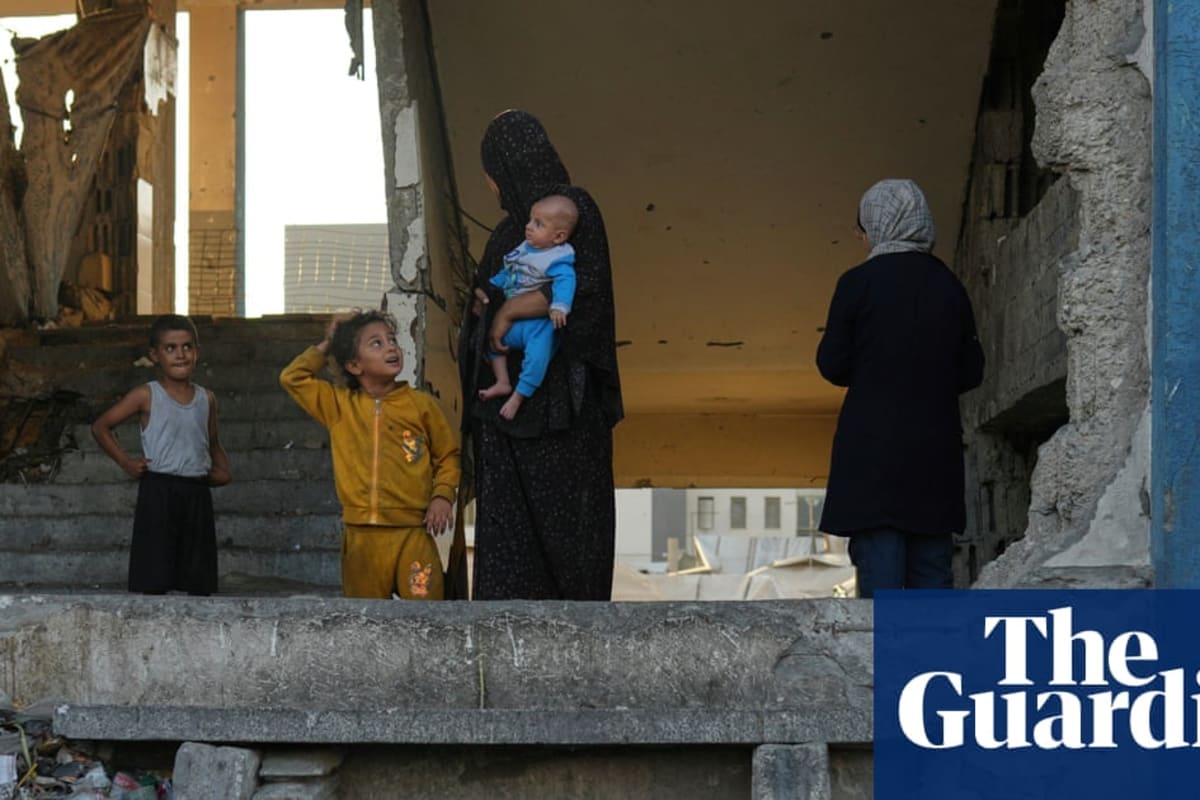US Senators Demand Urgent Aid for Starving Gaza Infants

A dire humanitarian crisis in Gaza has spurred five Democratic U. senators to demand immediate and substantial action.
In a letter addressed to Secretary of State Antony Blinken (not Marco Rubio as originally stated), and obtained by *The Guardian*, the senators are urging a significant surge in baby formula and comprehensive humanitarian aid to combat the escalating famine affecting the region The letter emphasizes the urgent need to address the critical shortages of essential supplies, including food, water, and medical assistance Spearheaded by Senator Ruben Gallego of Arizona, the letter highlights alarming statistics: reports indicate potentially hundreds of deaths from starvation since October 2023, including a disproportionate number of children While specific, verified numbers are difficult to obtain given the ongoing conflict and access limitations, international organizations have expressed grave concerns about the rapidly deteriorating conditions The senators note that these conditions meet key indicators of widespread famine in parts of Gaza, particularly Gaza City and northern regions where access to humanitarian assistance is severely restricted The senators' call for action extends beyond a plea for compassion; it represents a critical assessment of what they view as a catastrophic humanitarian failure The letter calls for the US.
government to deploy its full resources, including diplomatic leverage and financial assistance, to facilitate the swift and efficient delivery of life-saving aid The demand for a 'massive surge' underscores the immense scale of intervention required to effectively address the crisis This situation transcends regional concerns, evolving into a humanitarian emergency with far-reaching global implications, necessitating a coordinated international response Experts also highlight the need to address the root causes of food insecurity, including disrupted supply chains and limited agricultural production For Southeast Asian readers, understanding the context of this crisis benefits from acknowledging the region's historical experiences with humanitarian crises and its substantial contributions to international aid initiatives Several Southeast Asian nations have historically participated in international relief efforts, demonstrating a shared commitment to addressing global humanitarian challenges The ongoing conflict in Gaza, reminiscent of conflicts in other regions, emphasizes the crucial role of international collaboration in alleviating suffering and fostering stability Understanding the complex dynamics of international aid distribution, encompassing logistical hurdles and potential political constraints, is essential for Southeast Asian audiences The plight of children suffering from starvation resonates profoundly across cultural boundaries, underscoring the universality of human suffering and the imperative for collective action Southeast Asian nations can leverage their expertise in disaster relief to provide valuable assistance and support to the affected population The senators' letter raises several critical questions regarding the operational aspects of the proposed intervention Firstly, what specific mechanisms will be implemented to guarantee aid reaches those most in need, circumventing potential obstacles, diversion, or corruption Secondly, what level of financial, logistical, and personnel support will the US government pledge to this 'massive surge,' and how will these resources be allocated efficiently Thirdly, what explicit role will established international organizations, such as the United Nations Relief and Works Agency for Palestine Refugees in the Near East (UNRWA) and the World Food Programme (WFP), play in coordinating aid distribution and ensuring transparency and accountability in the process The answers to these fundamental questions are paramount for evaluating the potential effectiveness of the intervention and reinstating hope for the affected population While the immediate focus must remain on providing urgent humanitarian relief, addressing the underlying causes of the famine is equally crucial This entails examining the complex political and economic factors driving the conflict in Gaza and pursuing long-term solutions that promote sustainable peace and development Ignoring these underlying issues risks perpetuating recurring crises and necessitating ongoing humanitarian intervention The international community, including Southeast Asian nations, must actively contribute to establishing lasting solutions rather than merely reacting to immediate emergencies These solutions should include promoting economic stability, strengthening local governance, and fostering reconciliation among conflicting parties The resolution of the Israeli-Palestinian conflict remains a central challenge in achieving long-term stability in the region The urgency of the situation in Gaza cannot be overstated.
The images of starving children should serve as a constant reminder of our shared humanity and the imperative to act decisively to prevent further loss of life The senators' letter marks a vital initial step; however, the U government and the international community must now translate this call for action into tangible results, ensuring that desperately needed aid reaches those who require it most before it is too late This necessitates not only immediate action but also a sustained, long-term commitment to addressing the root causes of the conflict and creating a sustainable path towards peace and prosperity for the people of Gaza The international community, particularly nations in Southeast Asia with significant experience in disaster relief and humanitarian assistance, must collaborate to provide support and ensure accountability in aid distribution, leveraging their expertise and resources to alleviate suffering and promote long-term stability Further complicating the situation is the ongoing political instability in the region, the challenges of ensuring safe and secure access for humanitarian workers, and the potential for aid diversion or misuse Robust and transparent mechanisms for aid distribution are paramount to ensure that the most vulnerable individuals receive the assistance they urgently require The international community must collaborate to establish a strong system for monitoring and evaluating the effectiveness of the aid provided, ensuring that it makes a tangible and measurable difference in the lives of starving children and families in Gaza The meaningful involvement of reputable international organizations, working closely with local authorities and community groups, is essential in this process to promote accountability, transparency, and the effective delivery of humanitarian assistance
